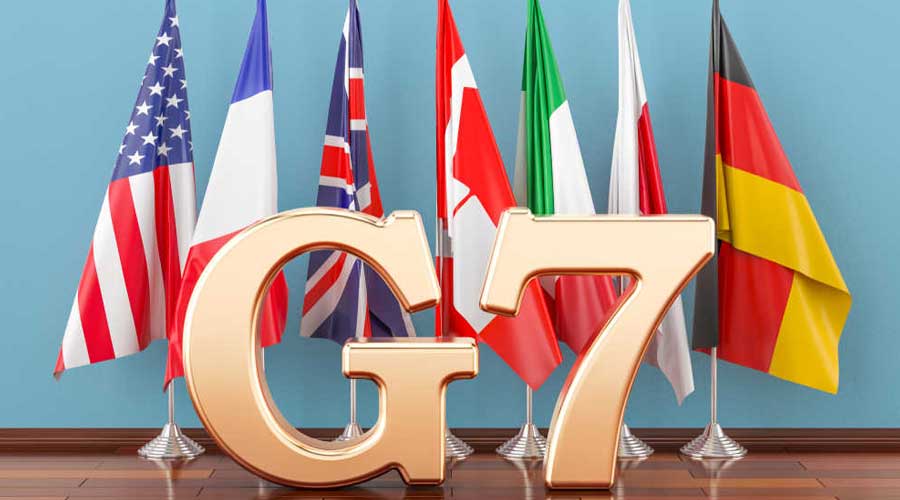Sri Lanka is tapping Japan. Nepal has asked Denmark. Bangladesh has appealed to its diaspora in the US.
South Asian countries are looking to the rest of the world to jump-start inoculation campaigns that have stalled since India halted vaccine exports to deal with its catastrophic second coronavirus wave this spring.
The ad hoc approach shows how the decision by India, the world’s biggest vaccine manufacturer, left poorer countries with few options for vaccines as richer countries hoarded much of the global supply. Even as the US and other global powers pledge to donate a billion doses to poor nations, the World Health Organisation says 11 billion doses are needed to defeat the pandemic.
Countries in South Asia and elsewhere — many battling outbreaks — continue to scramble for vaccines. Health officials say the vaccine pledge by the Group of 7 industrialised nations is too vague to incorporate into real planning, and does little to address the immediate needs of the millions of people awaiting doses.
India’s neighbours began vaccinations this year with a combination of doses donated by India and purchased from the Serum Institute of India, which is producing the vaccine developed by Oxford University and AstraZeneca, branded locally as Covishield.
But as coronavirus cases rose sharply in India in March, Prime Minister Narendra Modi’s government blocked exports, forcing Serum to renege on bilateral agreements and commitments to Covax, the global program aimed at distributing vaccines to the world’s poorest countries.
In Nepal, about 1.4 million people age 65 and older have been awaiting a second shot after receiving a first AstraZeneca dose in March. Nepal’s government has appealed to diplomats in Britain, Denmark, South Korea and the US for help.
“Efforts are on,” said Dr Taranath Pokhrel, a director at the Nepali health ministry, “but no substantive progress has been achieved so far.”
Of the first 25 million vaccine doses pledged as donations by the Biden administration, seven million are earmarked for Nepal and other countries in Asia, but in Kathmandu, the Nepali capital, it’s not clear when, what kind or how many will arrive.
Even after a weeks-long nationwide lockdown, nearly one in three of Nepal’s coronavirus tests has been coming back positive. Less than 1 per cent of the Himalayan country’s 30 million people are fully vaccinated.
Nepal, Bangladesh and Sri Lanka have all received donations from China of its Sinopharm vaccine. But Sri Lanka, like Nepal, is angling for more AstraZeneca shots to provide a second dose to tens of thousands of people, some of whom have been waiting for nearly four months.
Sri Lanka’s President, Gotabaya Rajapaksa, met Japan’s ambassador to appeal for 600,000 AstraZeneca doses, and officials said that the Japanese government was receptive.
Japan, which has announced plans to donate doses across Asia, has “given a bit of a green light” to Sri Lanka, General Shavendra Silva, the head of a Sri Lankan Covid task force, told The New York Times.
Sri Lanka’s government plans to inoculate the rest of its population with the donated Sinopharm doses and Sputnik V shots it has purchased from Russia.
Bangladesh, where infections and deaths from a second wave of the coronavirus continue to rise, is counting on its US diaspora to raise pressure on the Biden administration for help obtaining more AstraZeneca doses, said Shamsul Haque, secretary of the country’s Covid vaccine management committee.
“We are short roughly 1.5 million doses of AstraZeneca for second shots,” Haque said.
China has donated 1.1 million Sinopharm doses, and Bangladesh is negotiating bulk buys of more vaccines from China, and Sputnik V doses from Russia. Only about 4.2 million of Bangladesh’s 168 million people are fully vaccinated.
Antiviral pills
The US government will invest $3.2 billion to develop antiviral pills for Covid-19, the department of health and human services announced on Thursday. Such a treatment could keep people out of the hospital and potentially save many lives in the years to come, as the virus becomes a perennial threat despite the distribution of vaccines.
A number of other viruses, including influenza, HIV and hepatitis C, can be treated with a simple pill.
But despite more than a year of research, no such drug exists for the coronavirus. Operation Warp Speed, the Trump administration’s programme for accelerating Covid-19 research, invested far more money in the development of vaccines than of treatments, a gap that the new programme will try to fill.
The new influx of money will speed up the clinical trials of a few promising drug candidates. If all goes well, some of those pills might become available by the end of this year.
New York Times News Service











